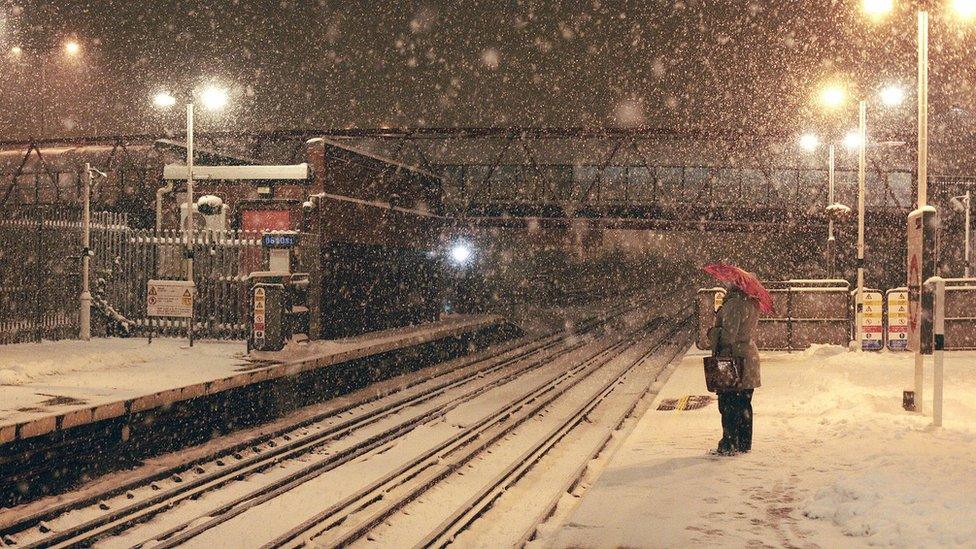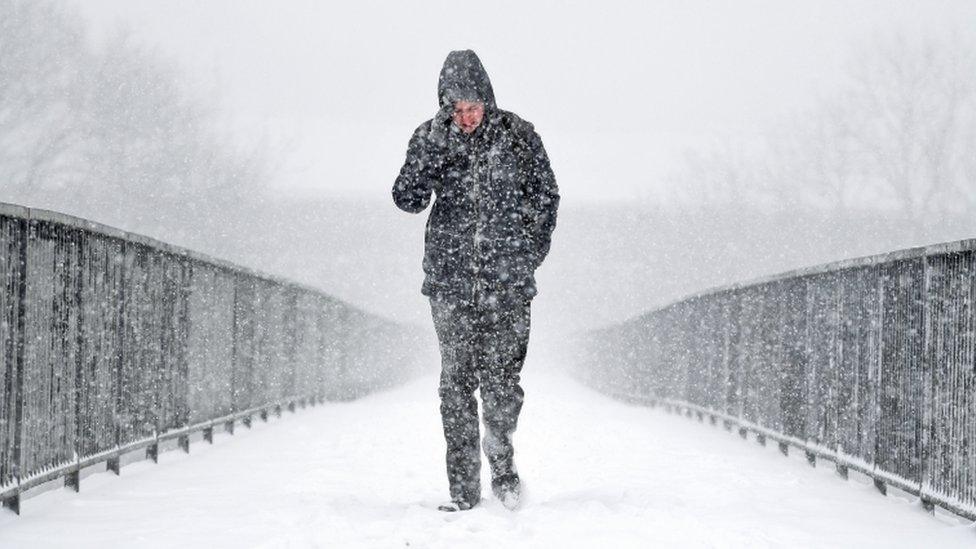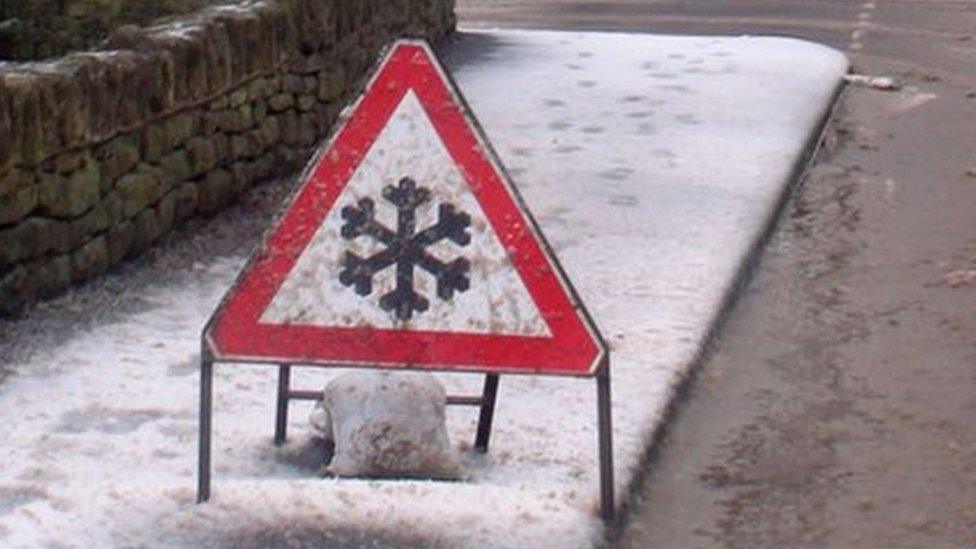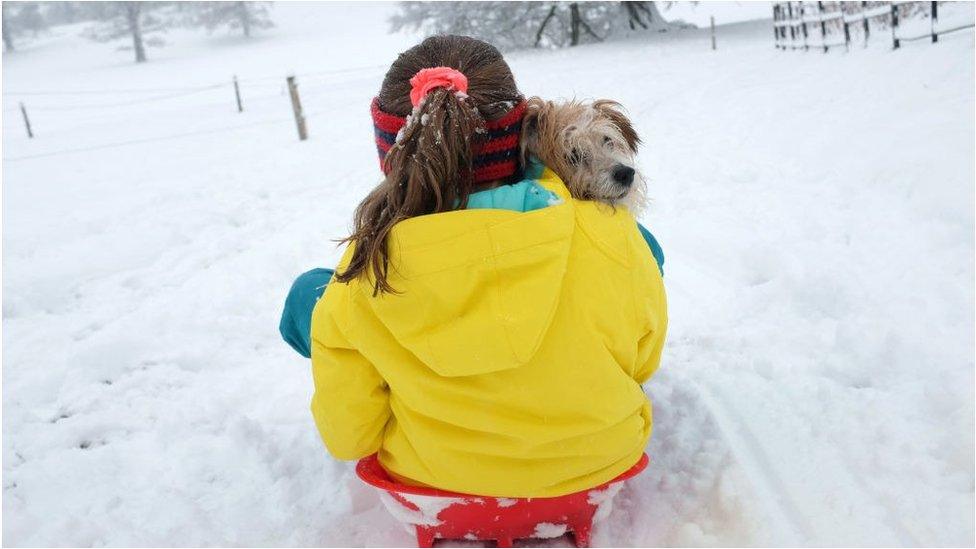It's snowing - can I refuse to go to work?
- Published

As heavy snow affects large swathes of the UK, many people are finding it hard to get to work on Thursday.
Commuters have been warned of major disruption on the road and rail networks after the "beast from the east" brought more snow, with Storm Emma expected to make matters even worse.
So if getting to work is impossible, what are your rights?

Do I still get paid?
In most cases you are not automatically entitled to pay if you are unable to get to work because of travel disruption or bad weather.
But that doesn't necessarily mean you will lose out.
If your employer normally provides your travel to work and this has been cancelled because of the bad weather you should still be paid, according to the employment advice and conciliation service Acas. , external
Some jobs may also have a specific clause written into their contracts, or have a collective agreement in place, that an employer will pay you if you cannot get to work due to circumstances beyond your control.
Some employers might also make discretionary, informal arrangements.
For example, they may let you work from home, or agree that you can make up the missed time at a later date. However, they are not obliged to do this.

Can my employer force me to take a day off as holiday?
Your employer can ask you to take a day of paid holiday - but only if they give you sufficient warning.
The law states that you must be given a warning period of "at least" double the length of annual leave you are being asked to take.
So, if your employer wants you to take one day's annual leave, for example, they would need to give you two days notice.

What if my workplace is closed?
In these circumstances, you are entitled to be paid.
In addition, your employer cannot require you to take the time as annual leave.
But don't rush out to make snow angels or have a snowball fight just yet. Your employer can still ask you to work from home, or ask you to go to another workplace that is open if the business has one, according to government advice website Gov.uk., external

My child's school is closed due to snow: can I take the day off?
Employees have the right to take unpaid time off to deal with emergency situations for their children or other dependants.
Lawyers suggest that a school being shut at short notice is likely to be considered an emergency.
Strictly, the day would be unpaid but not all employers would take this approach.
Acas advises , externalyou talk to your employer as soon as you can to explain that you need to take time off and the likely length of the absence.
It says one option is that you jointly agree to take the day as annual leave so you do not miss out on pay.

My office is freezing - can I go home?
Not necessarily.
The Health and Safety Executive recommends, external a minimum temperature of 16C for offices where the work is deskbound and fairly sedentary. If the work requires physical effort, the minimum recommended temperature is 13C.
These temperatures are not a legal requirement but your employer has a duty to provide a "reasonable" temperature in the workplace.
But as anyone who's had a row over the office thermostat knows, what feels reasonable to one person may require another to wear their coat in the office.
If low temperatures make it unsafe for workers, then Acas says you should be allowed to wear warmer clothing, take extra breaks to make hot drinks and also be allowed to bring in extra heating options such as portable heaters.
However, if you are vulnerable in any way, for example are pregnant, then you may be sent home to protect your health, and this would usually be on full pay.